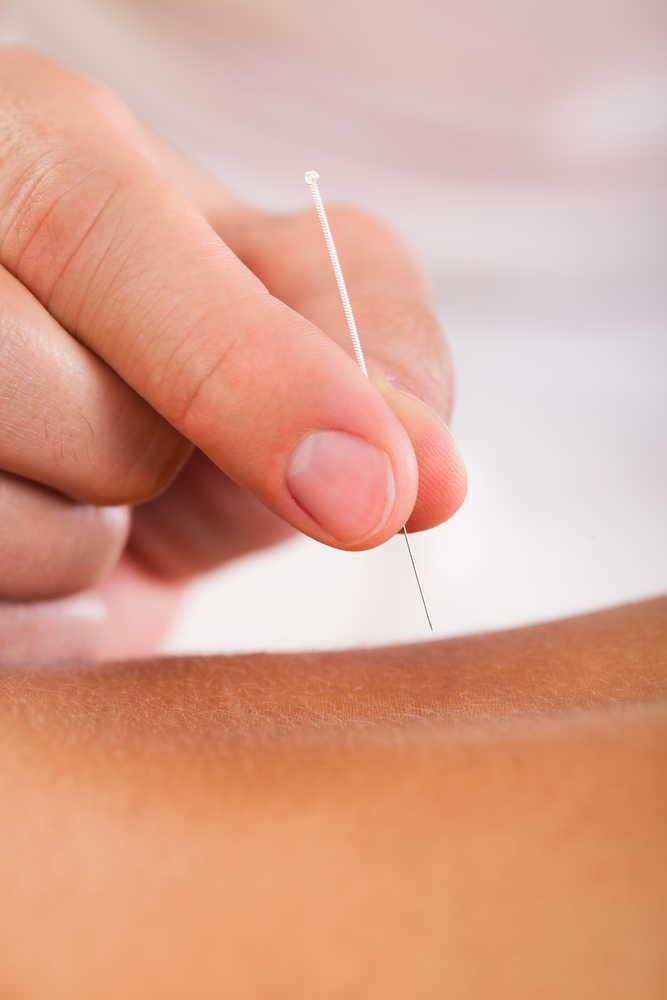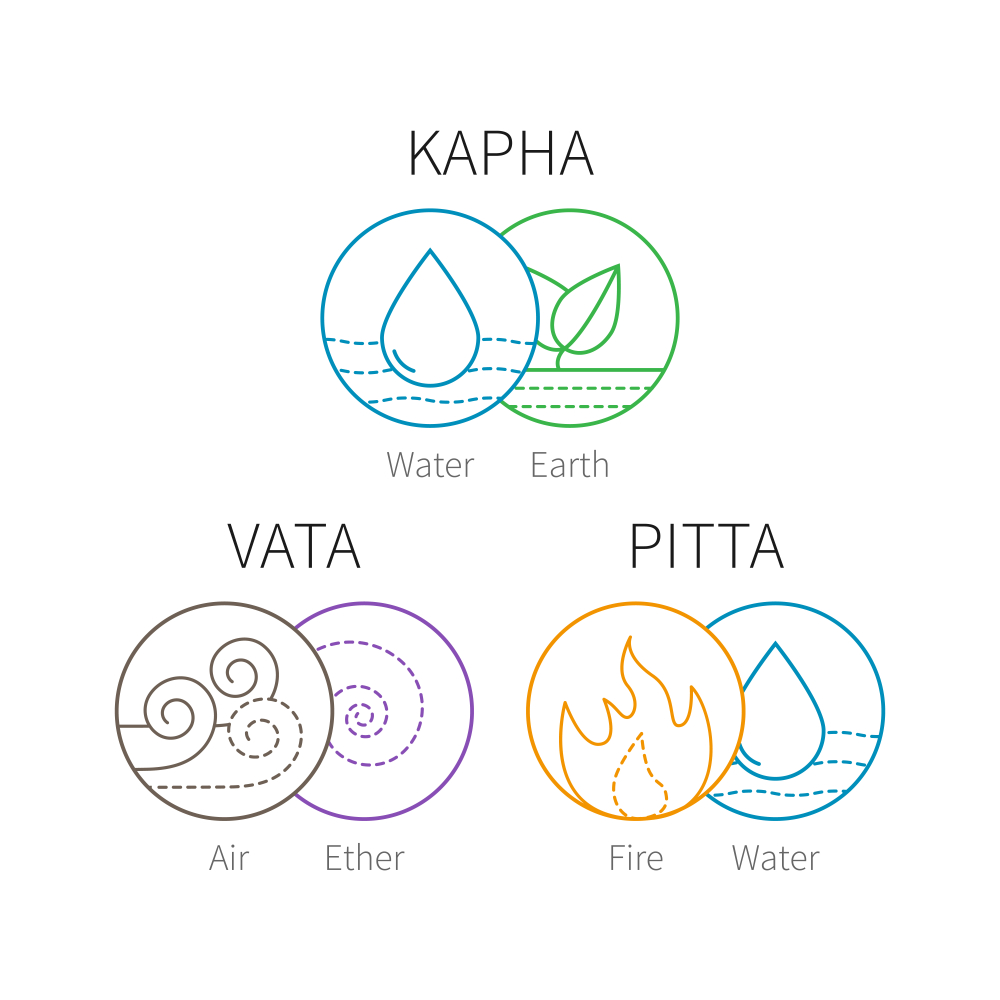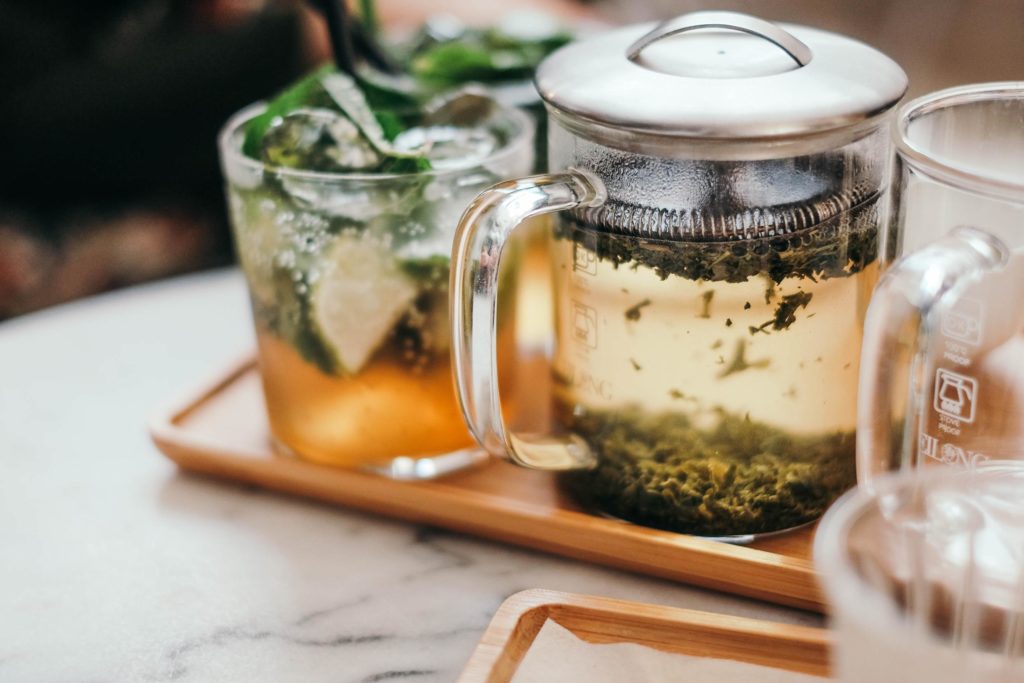EASTERN MEDICINE TREATMENTS FOR PMS
Herbs, Acupuncture & Everything In Between

As most people with uteruses know, PMS (or premenstrual syndrome) sucks. Thanks to PMS, around that time of the month you’re bloated, annoyed, exhausted and craving all of the junkfood. Depending on how intense your symptoms are, the pain might get so bad that you have to call in sick.
Unfortunately women have been dealing with PMS for centuries. It’s difficult to find one solution for it because everyone experiences PMS differently. You might have tender breasts and a sore back, while your bestie gets splitting headaches and an intense craving for burgers.
But while there may not be a one-size-fits all treatment for PMS, there are a few options. In the west, many doctors prescribe birth control to regulate your hormone, making your period more consistent and lighter while decreasing the hormones that cause painful cramps. Other than that, Advil and a heating pad are your best friends when it’s that time of the month. In eastern medical traditions, on the other hand, there are a few more ways to deal with symptoms and help make your time of the month less painful and disruptive.
PMS According to Traditional Chinese Medicine
 Western medicine doesn’t really understand exactly why PMS happens. They know it happens a few days before menses (AKA your period), and they think it might be related to shifting hormone levels. But at the end of the day, the docs don’t know exactly why it happens.
Western medicine doesn’t really understand exactly why PMS happens. They know it happens a few days before menses (AKA your period), and they think it might be related to shifting hormone levels. But at the end of the day, the docs don’t know exactly why it happens.
In Traditional Chinese Medicine (TCM), practitioners understand PMS as a result of stagnant liver Qi or Blood (P.S. Here’s more detail on that and how to fix). The liver makes sure energy like Qi and blood flows smoothly and evenly throughout your body. When the Liver is blocked, blood starts to collect in the uterus, making your monthly period more painful. This can also give you a heavy period, mood swings, and constipation that are common with PMS.
Other things can cause pain and cramping related to PMS, too. You might not have enough blood or Qi in your body, or there could be too much Heat or Cold in your body. Ideally, you would have vibrant Qi that flows smoothly throughout your body and you’d have a balanced internal temperature. When that doesn’t happen, painful syndromes like PMS appear.
PMS Treatments from TCM
 When it comes to managing the symptoms–and hopefully, the cause–of PMS, TCM practitioners usually recommend acupuncture. In particular, your acupuncturist should pay a lot of attention to your Liver Qi to help unblock it.
When it comes to managing the symptoms–and hopefully, the cause–of PMS, TCM practitioners usually recommend acupuncture. In particular, your acupuncturist should pay a lot of attention to your Liver Qi to help unblock it.
The goal here is to calm your Qi, remove any blockages, and help it get flowing nicely throughout your body again. Remember that everyone experiences PMS differently, so talk to your acupuncturist about your symptoms so they can tailor their treatment to you. Don’t be startled if they needle your foot or leg rather than over your liver. That is the origin of the Liver meridian.
To see the best results from this treatment, keep it up for about 3 months. You should notice results and relief right away, but continuing the treatment should help to completely address the stagnation.
Your Acupuncturist may give you herbs as well. Xiao yao san and Jia wei (modified) xiao yao san are frequently given together. Or, your herbalist may give you Xiao yao san from your period to ovulation, and Jia wei xiao yao san from ovulation until menses. Those help with Liver qi stagnation. If the root is yin or yang deficiency, LIu wei di huang wan for yin and JIng wei shen qi wan for yang might be given the same way. That shows that hormonal balance shifts during your cycle.
PMS According to Ayurveda
 When it comes to the ancient Indian tradition of Ayurveda, to understand PMS you first need to know a little bit about a woman’s life cycle.
When it comes to the ancient Indian tradition of Ayurveda, to understand PMS you first need to know a little bit about a woman’s life cycle.
In Ayurveda, women have three stages of life connected with different forms of dosha or energy:
- Phase 1: Before they get their period. This time is dominated by kapha dosha which is connected to water and earth.
- Phase 2: These are the childbearing years. This time is all about pitta dosha, or fire energy.
- Phase 3: After menopause, your life is ruled by vata dosha, the energy of air.
In the Ayurvedic tradition, PMS is usually caused by aggravated pitta and vata. Vata keeps things moving, but during PMS it fans the fires of pitta dosha. This leads to the mood swings and irritability of PMS, plus the hormonal breakouts you might get. Vata can also aggravate your kapha dosha, which causes you to gain a little weight and feel extra lazy.
It’s also important to remember that, from the Ayurvedic perspective, menstruation in general is a natural detoxifying process. Sometimes, that can be painful, but it should be respected as an important process.
How To Help PMS Symptoms With Ayurvedic Medicine
Try Tea
 Ayurveda has used natural remedies like herbal teas for hundreds of years to help make PMS less painful. Before your symptoms start, during the first week of your luteal phase, if you track that, drink tea made from anise, tulsi, or fennel. Fennel helps with inflammation, tulsi lowers your anxiety, and studies show that anise helps with PMS symptoms in general.
Ayurveda has used natural remedies like herbal teas for hundreds of years to help make PMS less painful. Before your symptoms start, during the first week of your luteal phase, if you track that, drink tea made from anise, tulsi, or fennel. Fennel helps with inflammation, tulsi lowers your anxiety, and studies show that anise helps with PMS symptoms in general.
Opt For Herbs
If tea isn’t your thing, you can try consuming herbs in other ways. If you tend to have tummy troubles during that time of the month, try eating pure aloe. Bamboo manna, also known as Tabasheer, helps lower your pitta levels before and during your period. Saraca Indica, which comes from the Ashoka tree, is known for its mental health and reproductive benefits. It helps keep your vata healthy and lets your body detox. There are plenty of herbs that can soothe PMS-related symptoms, so talk to your Ayurvedic practitioner about which ones will help you the most.
A Gentle Stretch
If you’re the type who hits the gym religiously, you might be making your PMS symptoms worse. According to Ayurveda, you should take it easy during your period. Too much activity can mess up your vata flow.
But that doesn’t mean you should become a total couch potato. It’s important to move your body gently. You can go for light walks or opt for a yoga practice full of pranayama and gentle stretching. That will keep your body healthy without disrupting your vata too much.
Western medicine chalks it up to hormone imbalance, TCM blames it on liver Qi, and Ayurveda points the finger at unbalanced dosha. Whatever the cause, PMS is painful, inconvenient, and just plain annoying. And because everyone experiences PMS differently, there’s no singular way to treat all the symptoms. But hopefully some of these tips from eastern medicine will help you find some soothing relief when you need it the most.
Newer
3 Natural Ways to Fix Constipation with Eastern Medicine--FAST!
Older
How To Prevent Or Stop Memory Loss, According to TCM
Comments (0)
Leave a reply
You must be logged in to post a comment.




